Introspection is a big part of being a translator or interpreter, or any professional for that matter. It’s important to sometimes reflect on ourselves and our work so we can get an idea of where we are professionally, what we need to improve on, and most importantly to keep our egos in check. Lack of self-reflection can lead to incompetence, or in more grave circumstances ignorance of incompetence. David Dunning said it best:
“If you’re incompetent, you can’t know you’re incompetent. . . . The skills you need to produce a right answer are exactly the skills you need to recognize what a right answer is” (1).
This is the basis of what is known as the Dunning-Kruger effect, a cognitive bias of illusory superiority.
“The Less You Understand About Something, The Simpler It Seems”

http://www.smbc-comics.com/?id=2475
Scott Adams, creator of “Dilbert” once wrote this, and it is another great way of explaining how this effect manifests itself in real life. An example of this would be the popular plot device in media where a highly secure establishment has its network “hacked” in a matter of moments by a single person with the right expertise. Suddenly, this “hacker” can remotely control everything about the system and use it in ways that it isn’t even made to be used. In reality, these types of computer systems are unbelievably complicated and the outcomes portrayed on the screen are impossible. However, many viewers find these scenarios plausible precisely because their understanding of them is incomplete.
With regard to language, a good way to think about this effect is a person who has taken courses for a second language, especially one where they are not likely to encounter native speakers i.e. Russian or Japanese in the Midwest. The student may have success in their course work, and based on that success they might say they speak the language “well” or sometimes even “fluently.” This inflated confidence does not come out of malice, but because they have never been in an environment where their understanding is truly challenged, like the native country of the language or a standardized fluency test.
Bilingual persons may think they are prepared to take the FCICE or CCHI exam or interpret professionally because “they speak both languages,” but as soon as they get into the testing room or their first interpretation assignment they will very quickly realize just how unprepared they are. This is the main reason passing rates for these exams are so low (for the FCICE exam it’s estimated to be about 1-4%, for the CCHI exam >80% in 2015); people don’t know how much they actually know.
The Other Side of the Coin

https://www.teachaway.com/sites/default/files/default_images/ta-default.jpg
This effect goes both ways; frequently, especially when a person has a history of being successful with relatively little effort, it is easy to lose sight of the complexity of new tasks. The tendency is often to minimize and dismiss any learning curve and assume one’s competency based on past successes rather than present data.
For professionals, and especially trainers, it’s important to be extremely important to be aware of the prevalence of the Dunning-Kruger effect, even for intelligent individuals who are already learned and accomplished. In fact, highly skilled professionals tend to underestimate their relative competence, and wrongly assume that tasks that are easy for them also are easy for others. This can create a lot of frustration among students, as they cannot possibly understand why they’re not “getting it” if the teacher doesn’t either. When introducing a new skill to an audience, it’s important to be aware of these cognitive pitfalls and help students develop objective means of self-assessment to avoid them.
A good place to start with self-assessment is a process called shadowing. You can read more about the process here, where our president, Agustín De La Mora,outlines common problems with the evaluation of interpreters and how to improve as a professional.
In summary, a little bit of self-reflection can go a long way. It allows you to avoid all of these negative effects, helps you identify weaknesses and, ultimately, become the best professional you can be!
Have you encountered this effect in your experience in the field of translation and interpretation? How do you go about objectively assessing your skills? Leave a comment below, and check back next week for another edition of Links Interpreters Love.
Edit: The passing rates for the CCHI Exam and FCICE Exam have been edited for accuracy and to include sources. The CCHI rate has been changed from 75% t0 80% in 2015.
For the FCICE Exam, it’s much more difficult to find an exact number. General consensus tells us the passing rates are about 20% for each section of the exam, but since there are no official numbers released by the organization there is no way to know for sure. What we DO know is that the rates are very low.
1. Dunning, David (2005). Self-insight: Roadblocks and Detours on the Path to Knowing Thyself. Psychology Press. pp. 14–15. ISBN 1-84169-074-0.


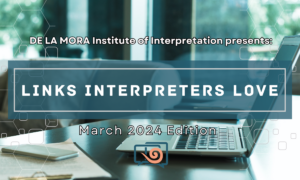
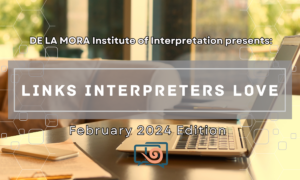
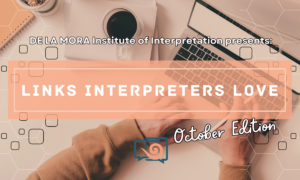



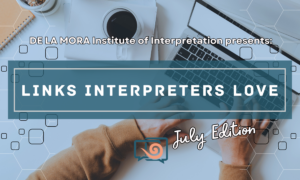
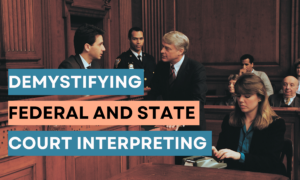


2 Responses to LIL: Know How Much You Know; The Dunning-Kruger Effect